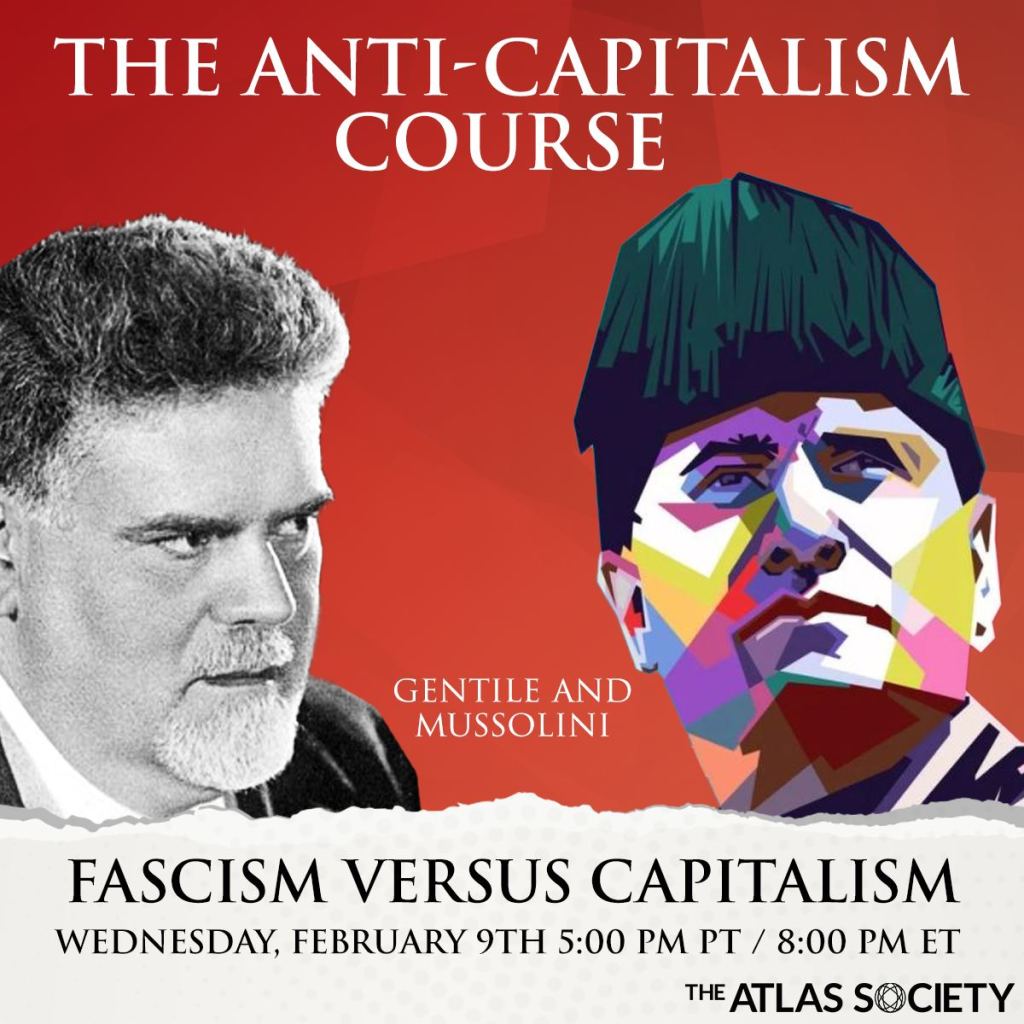The connections between philosophy theory and political practice are often long-term. Here are three juxtapositions of quotations from philosopher Immanuel Kant in the 1780s and philosopher Gentile and politician Mussolini in the 1930s.
On what’s good for the species versus what’s good for the individual:

Kant,: “For all of that, this path that for the species leads to progress from the worse to the better does not do so for the individual.” (“Speculative Beginning of Human History,” 53/115)

Mussolini and Gentile: “The maxim that society exists only for the well-being and freedom of the individuals composing it does not seem to be in conformity with nature’s plans, which care only for the species and seem ready to sacrifice the individual.” (The Doctrine of Fascism, 1932)
On whether reason is developed in the species or in the individual:
Kant: “In man (as the sole rational creature on earth) those natural capacities directed toward the use of his reason are to be completely developed only in the species, not in the individual.” (“Idea for a Universal History with Cosmopolitan Intent” (H29-40) [1784], 30/18).
Mussolini and Gentile, quoting Renan approvingly: “Reason and science are the products of mankind, but it is chimerical to seek reason directly for the people and through the people. It is not essential to the existence of reason that all should be familiar with it; and even if all had to be initiated.” (The Doctrine of Fascism, 1932)
On whether peace is desirable:
Kant: “Thus, at the stage of culture at which the human race still stands, war is an indispensable means for bringing it to a still higher stage.” (“Speculative Beginning of Human History”, 58/121)
Mussolini and Gentile: “Fascism does not, generally speaking, believe in the possibility or utility of perpetual peace. It therefore discards pacifism as a cloak for cowardly supine renunciation in contradistinction to self-sacrifice. War alone keys up all human energies to their maximum tension and sets the seal of nobility on those peoples who have the courage to face it.” (The Doctrine of Fascism, 1932)

Related: Tomorrow.
Related: Tomorrow.
Pingback: Reading Lounge | Evocatively Ambiguous